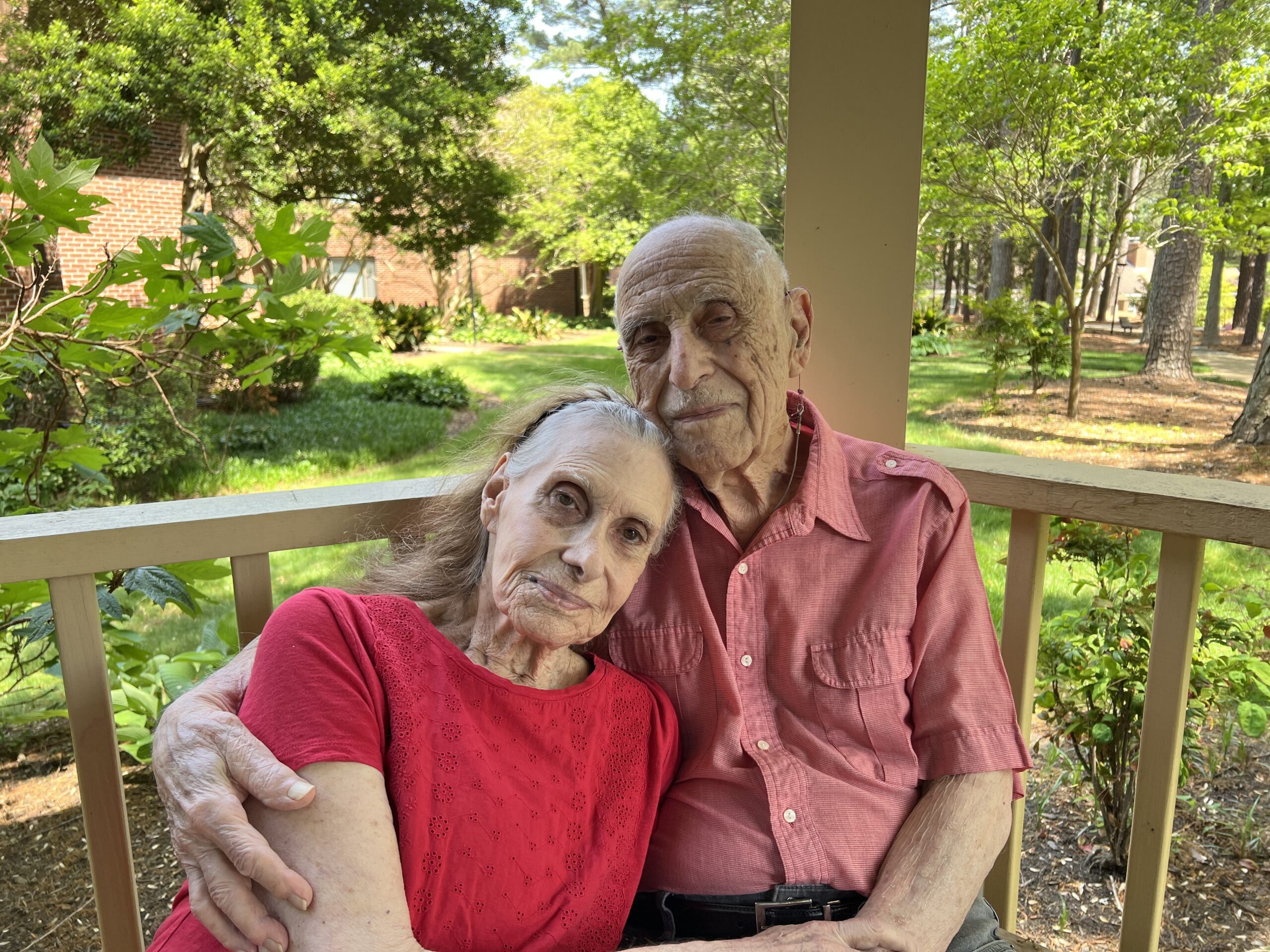Lee and I sit together on a late November afternoon in “Lee’s Gazebo” at Springmoor, our retirement home in Raleigh, North Carolina. “Beautiful day, bright day, lighting the trees,” says Lee. “Nice breeze, nice gazebo, beautiful day,” she croons. I listen. Lee is the love of my life, my second wife. Her echolalia—a repetition of phrases—is caused by severe memory loss. First recognized in the 1700s, dementia diagnoses affect 10 percent of the U.S. adult population in 2025,* according to health statistics from the Centers for Disease Control and Prevention. Science aside, I smile at Lee, admiring her keen ability to savor the beauty and delight of a moment. Her voice is my most joyful song.
This moment triggers my memory of the 1938 Knickerbocker Holiday premier in New York City, where I was born in 1924. In my life’s springtime then, I was captivated by the musical’s song about an older man wooing a young woman. “Life,” he intoned, “is a long passage from a youthful May to the December of life’s end.” He wanted precious time with the show’s star. My star, Lee, is now 94, and I am her centenarian caregiver. It is a labor of love.
Back from the gazebo, we sit in our apartment, in precious aloneness. November’s fleeting days are evident on a wall calendar that will soon advance. It hangs near photos and mementos from years past.
When I joined the U.S. Army in 1943 after high school graduation, I had no idea of the impact dementia would have on my “third act.” Back then, my life’s story was not yet written. One chapter includes my wartime assignment to a convoy that moved in 1945 from New Guinea up through the Philippine Islands to Manila.
After the war, I met my first wife, Amelita, at Catholic University of America in Washington, D.C. After marrying, we had two children and divorced in 2005. In 2023, death came calling. That fateful year, my beloved daughter died, my son suffered a heart attack, and their mother passed away from dementia. My son’s sudden illness brought back memories of our family’s earlier years, including four I spent designing and fabricating exhibits for the Smithsonian Institution, a national treasure in our nation’s capital.
I’ve enjoyed many treasures and am grateful, but more than any accolades or grand experiences, including my glimpse on a trip of the fabled and wondrous Treasury of Petra in Jordan, my greatest treasure has been Lee. We returned today to “her” gazebo, savoring the fading light. I sighed, not with regret, but from the presence of a terrible mind thief.
As I help Lee to bed this evening, I know that the December of life’s end will eventually come. We cannot know who will leave first, but I pray that we see one last sunray through the trees turn “Lee’s Gazebo” golden. Please, dear Powers of the Universe, may December not linger—let it be mercifully brief.
Barbara K. Cleary is a graduate of the City University of New York and publishes an international education blog http://attentionology.com. She has conducted writing workshops and programs to entertain and inspire adults in regional retirement communities since 2005. She has also produced radio programming, including The Medical Minute, for the North Carolina News Network. Cleary’s awards include the North Carolina Governor’s Business Award and a National Top Ten Business Woman award.
Information on Dementia:
- Dementia diagnoses affect some 10 percent of the U.S. adult population in 2025. (Source: Centers for Disease Control and Prevention)
- In 2019, an estimated 5 million Americans are living with dementia, and this number is projected to nearly double to over 10 million by 2050, .(Source: The Lancet, Vol 7, Feb 2022))
- After age 55, four in 10 adults are likely to develop some form of dementia. (Source: Nature Medicine Journal, January, 2025)


